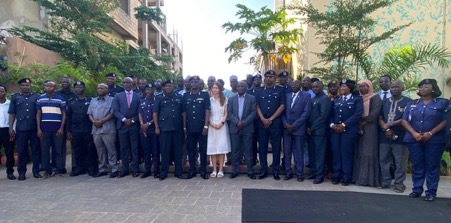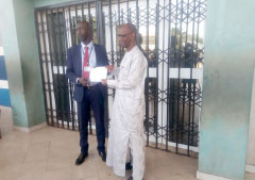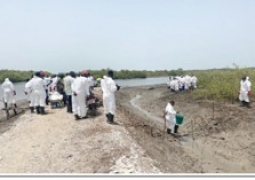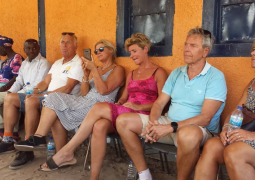
The three-day validation, held at a local hotel in Senegambia, gathered regional governors, chiefs, Alkalolu and various partners.
The forum was aimed at reviewing and validating the proposed Police Bill in collaboration with key external stakeholders.
At the event, Seedy Mukhtar Touray, Inspector General of Police, emphasised that the process was highly consultative and inclusive, ensuring that the needs and aspirations of a broad cross-section of Gambians were considered.
IGP Touray recalled that in May 2024, the consultant and TW members consulted with Civil Society, public officials, the press and private citizens at the Ministry of Interior conference room.
“Again, from the sixth to the ninth August 2024, the consultant, TW members and a cross-section of police officers did the internal validation of the bill at NaNa conference center.”
The Police Chief highlighted key aspects of the draft bill, which he said includes the establishment, constitution, functions, and structure of the police, as well as the capacity, capability, and integrity of the police force.
Former Interior Minister, Yankuba J.N. Sonko, the consultant tasked with drafting the bill, said the objective of the bill is to provide for a more efficient and effective police force that will be based on the principles of accountability and transparency, respect and protection of human rights and to partner with the community and other security services.
Sonko emphasised that the police force will be accountable to Gambian laws in all its operations and actions; saying they will also be accountable to the people of this country for service delivery in line with the policing needs of the various communities they serve.
Regarding human rights, Sonko noted that the bill seeks to ensure that the police force upholds the Constitution and other laws, protecting the fundamental rights of every person during arrests, detentions, charges, and other activities.
This, he added, includes special attention to the rights of women, children, and other vulnerable persons.
“And in particular, the rights of women, children and other vulnerable persons who, from time to time, come into contact with them, either as a witness or a victim, and to be fair to all persons, irrespective of their economic status, sex, religion, ethnic, political or other affiliations.” he said.
The bill, he further added, also covers the appointment, qualifications, functions, duties, and removal of the Inspector General of Police, Deputy Inspector General of Police, Assistant Inspector General of Police, and commissioners of police.
Additionally, he revealed that the bill outlines the establishment and functions of various police units, including the human rights and professional standards unit, police prosecution department, gender and vulnerable persons protection department, and community policing units.
“It addresses recruitment, training, promotion, discharge, retirement, and conditions of service for police force members. It also details the powers and duties of Gambia Police Force members, the use of arms, and the use of force.”




